


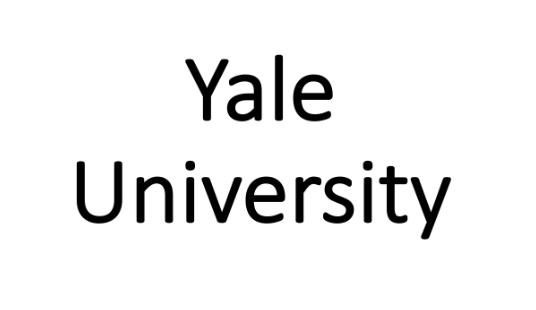


 Several Essays
Several Essays .svg) Written Answers
Written Answers  Activities List
Activities List  2 Recommendations
2 Recommendations  Online Application From
Online Application From  Parent/Guardian Consent
Parent/Guardian Consent 


Application is closed


Pathways to Science Summer Scholars is a free two-week summer science program exclusively for 100 Yale Pathways high school students. Students take multiple 5-day STEM workshops.
 Non-credit
Non-credit
 Residential
Residential
Students take multiple 5-day workshops on topics like: Engineering On Tap, The Microbes On and Around Me, The Power of Electrochemistry, The Physics of Light, Mechanics in Biology, and much more! Rising Pathways seniors are also eligible to apply to the residential program, which includes living in the Yale student dormitories and taking part in college preparatory programming in addition to attending STEM workshops during the day.
Only rising seniors are eligible to apply to the residential component of the summer program.
Workshop:
A Taste of Human Genetics | Genetics
What color are your eyes? Can you roll your tongue? Genes dictate these traits and more. Using techniques critical to the latest biomedical discoveries, explore how human genetics affects taste.
Chromatography: A Chemist’s Best Friend | Chemistry
Gas chromatography is an analytical chemistry technique widely used in academic and industrial labs. This course teaches how to perform gas chromatography and apply the technique towards real-world problems in sustainable chemistry!
Consciousness - Self, Science, and Society | Neuroscience
What makes us human? Do we have free will? And when exactly will technology have a sense of self? By cracking open these questions, we'll explore the neuroscience of consciousness.
Defenders of Your Health: Immune Cell Types and Their Functions | Immunology
Do you wonder how our body fights against diseases? In this course, you will utilize and understand how we harness our own cells to defend us against cancer.
Engineering On Tap: Designing Filtration Systems for Clean Water | Environmental Engineering
When did you last turn on a faucet? Learn how water moves from streams to your faucet, and build your own filter to remove pollutants from water.
ForAGirl | Public Health
Did you know videogames can be used for good? Come explore how our lab develops video games to impact teen health! Teen input leads the way. Are you game? Please note: video game coding is not part of this workshop.
How do we detect infectious viruses? | Virology
Viruses are too small to be seen with a light microscope. Put on a lab coat and become the scientist that detects and investigates viral infections in the laboratory.
Living Forces: Mechanics in Biology | Biology/Engineering
What do flour, toothpaste, and biological tissues have in common? Let's explore mechanics in biology and learn why nature is the ultimate engineer.
Model Organisms in Biology: The Mighty Worm | Biology
We will look into the daily life of a biologist that uses C. elegans to ask important questions in the life sciences, with the hopes of stimulating students to think about how their own outstanding scientific questions could be addressed!
Mudskippers, Morphogenesis, and Biodiversity | Biology
Much of the biodiversity on Earth is driven by animals moving and surviving across diverse habitats. Learn what amphibious fish can teach us about genetics, biochemistry, and mechanics.
Musical Acoustics & Instrument Design: When Engineering Meets Music | Engineering
Students will learn about basic engineering tools and acoustic concepts that can be used to design and build musical instruments ranging from electronic to mechanical.
Peanuts to Plasma Cells | Immunology
Food allergy is a complicated and serious disease. Discover how allergy is caused by the immune system, how scientists are working to stop it, and what mysteries remain.
Perfect Plants: Overcoming the Environment One Organ at a Time | Plant Evolution
We rely on plants for food, clothing, and housing, but what makes a plant tick? Dissect plant organs such as flowers and stems, and plan experiments to learn their inner workings.
Radio Astronomy - Measuring the Galaxy | Astronomy
How do we know our galaxy is rotating? Is this evidence for dark matter? Use a simple radio telescope to observe hydrogen gas in our galaxy and chart how it moves.
Scientific Thinking: How to Think Like a Scientist | Philosophy of Science
Controversies, hypotheses, biases and fallacies; examine science’s foundation. What can we know? How do scientists approach truth? Are dragons real and is there milk in the fridge? Let’s discuss!
Sensory Physiology Club | Biology
We experience the world through our senses. Explore how they work, test their limits, and compare sensory abilities of animals through hands-on experiments involving taste and smell, touch, and sight.
Stroke Busters | Biology
Dive into brain anatomy to explore the symptoms and risk factors of stroke with experts from the field. Participate in stroke code simulations and create fun, interactive lessons to teach others about stroke prevention.
The Mathematics of Symmetry | Mathematics
From wallpaper to crystals, symmetry underlies art, architecture, and science. Mathematics identifies commonalities and rules out the impossible. Learn to draw, analyze and appreciate symmetric patterns from a mathematician's perspective.
The Microbes On and Around Me | Microbiology
From antibiotic resistant bacteria to the microbiome, come explore the vast unseen world of microorganisms. Your experiments will investigate the bugs that keep us healthy and those that cause disease.
The Physics of Light | Physics
For all of us who can see, we experience light and color every moment. But what are they? We will explore light’s visible and invisible properties, and how these properties enable technologies from lasers to smart phones.
The Power of Electrochemistry | Chemistry
The future of sustainable energy is based in electrochemistry. By building your own batteries, redox pairs, solar cells and more, you will learn about the science behind how electrical energy is applied!
What Powers the World? The Chemistry of Energy | Chemistry
Where does the energy we use come from? Through building batteries and other experiments, we will explore the science behind the different ways energy is captured, stored, and used!
What’s in our air? Building a low cost indoor air quality monitor | Atmospheric Science
Did you know air pollution can be indoors? How do scientists know what’s in it? You’ll build a device to study sources of air pollution indoors and why it matters.
What’s Inside the Proton? Smash It to Find Out! | Physics
What makes up matter? Is anything smaller than the proton? Find out by smashing protons with electrons in computer simulations and studying the debris–just like physicists at the next-gen particle collider.
- Must be a Yale Pathways to Science Scholar currently in grade 9, 10, or 11.
- You must be available for the entire program, including the orientation on July 9.
- You must be up to date with COVID-19 vaccinations.
 Several Essays
Several Essays
.svg) Written Answers
Written Answers
 Activities List
Activities List
 2 Recommendations
2 Recommendations
 Online Application From
Online Application From
 Parent/Guardian Consent
Parent/Guardian Consent
1 - Online application form.
The end of this document also lists the workshops offered with brief descriptions that you will rank in the form based on your preference.
2 - Teacher recommendation: link to one Math teacher and one Science teacher to be completed by Feb 28/
3 - List three words that describe you.
4 - List and briefly describe other school activities in which you participate. (We ask about the following programs in a previous question: US Grant, Peabody EVOlutions, Pathways Summer Scholars, Yale Laboratory Internship.)
5 - Short Essays:
Short Essay 1 (100 words or less)
Choose a personal interest, activity, or hobby of yours and describe how you might study it scientifically. Don’t worry if you’re not familiar with the technology or instruments required to study it, we are more interested in what you would pick and why.
Short Essay 2 (100 words or less)
What would you be most proud of accomplishing through Pathways to Science Summer Scholars? This might be your own personal growth, the experience of your peers, or anything else that would make you feel like your time was successful. How would you work towards achieving this goal and why is it important to you?
*Extra questions for current 11th graders only:
List colleges that you are considering applying to:
What are the reasons that you chose the colleges that you did? (100 words or less)
List the subject(s) you may major in:
Colleges strive to build vibrant communities within each student class. Write about some unique qualities you might bring to that community. (100 words or less)
6 - Long Essays:
Current 9th and 10th graders long essay options (Pick ONE)
Please answer ONE of the questions below in 350 words or less. Give us a sample of your best writing, as this is a very important part of the admissions process. The essay will be assessed for content, thoughtfulness, organization, creativity, and grammar. You may copy and paste from Word or a Google doc, as formatting will not impact evaluation.
Tell us about a time you were challenged by a perspective that differed from your own. How did you respond in that situation and what did you learn from this experience?
OR
Imagine you are on public transit and, upon learning you are a young scientist, the passenger next to you asks: “What do you like about science?” Briefly tell this person how you got interested in STEM and why you want to explore this topic further.
*Current 11th graders:
Please answer the question below in 350 words or less. Give us a sample of your best writing, as this is a very important part of the admissions process. The essay will be assessed for content, thoughtfulness, organization, creativity, and grammar. You may copy and paste from Word or a Google doc, as formatting will not impact evaluation.
Consider your future as a college student. What subject (or subjects) most interest you? Why? What do you see as your greatest strengths and weaknesses? How do you think these will impact your success in college? Be specific.
Deadline
Applications for summer 2023 program were due on March 10th.
 Jul 09 - Jul 21
Jul 09 - Jul 21
 2 weeks
2 weeks
 Jul 09 - Jul 21
Jul 09 - Jul 21
 2 weeks
2 weeks
The program is tuition-free.




 Several Essays
Several Essays
.svg) Written Answers
Written Answers
 Activities List
Activities List
 2 Recommendations
2 Recommendations
 Online Application From
Online Application From
 Parent/Guardian Consent
Parent/Guardian Consent



Application is closed

Useful Resources
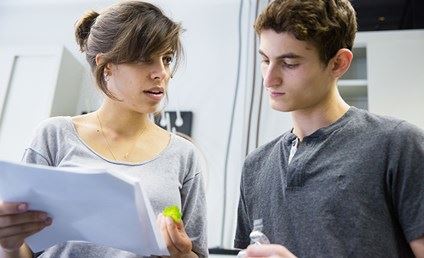





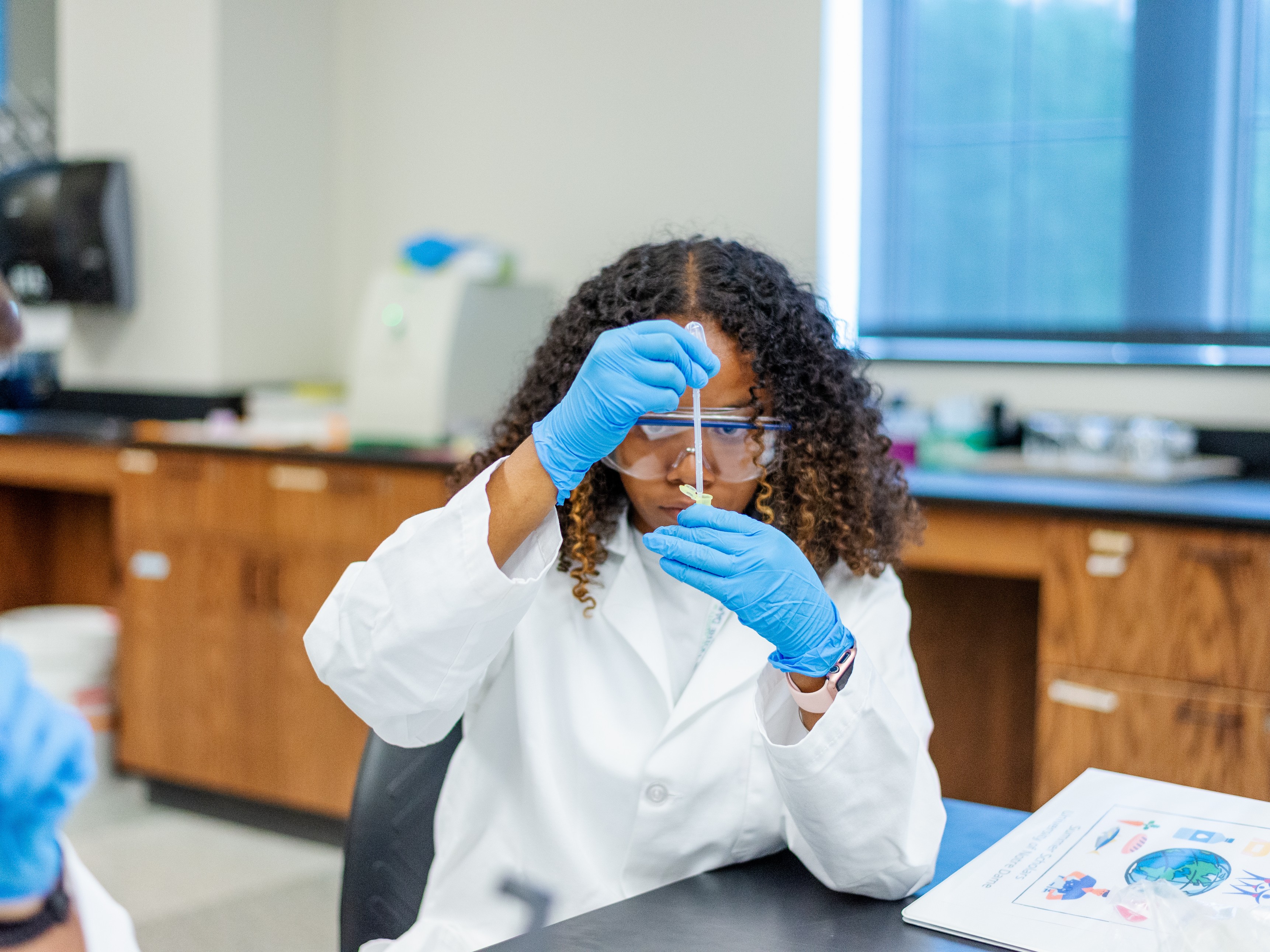



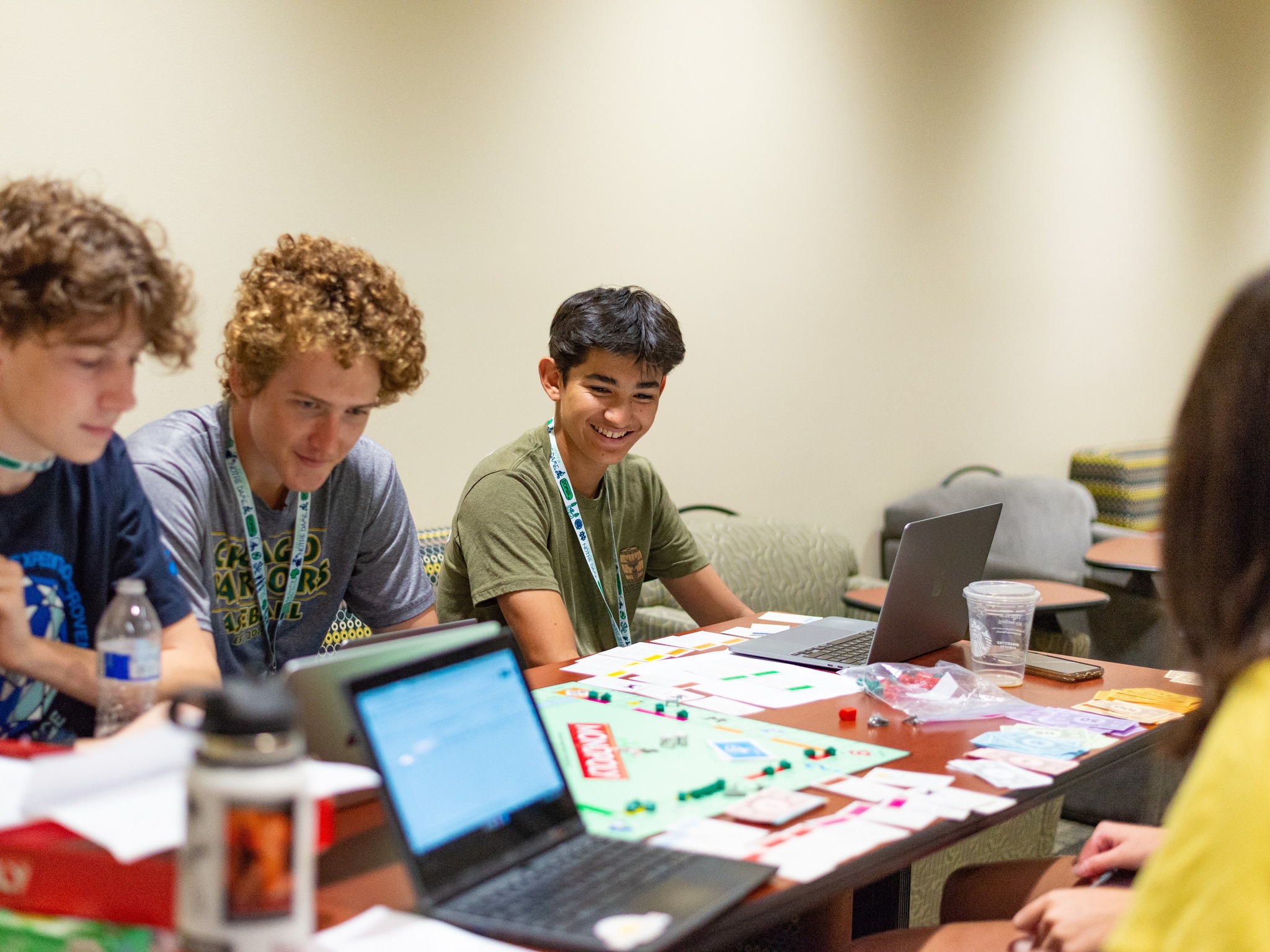
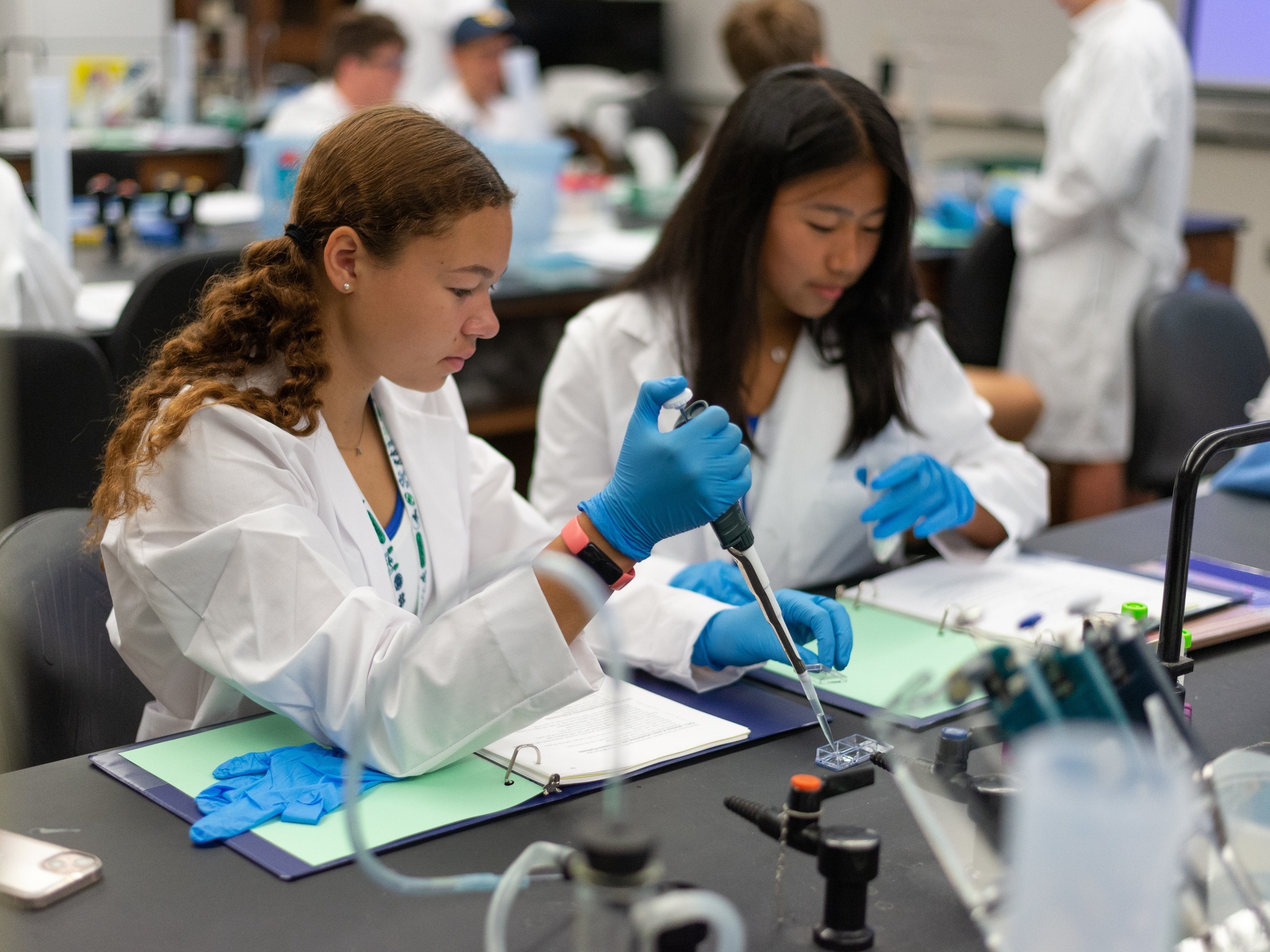




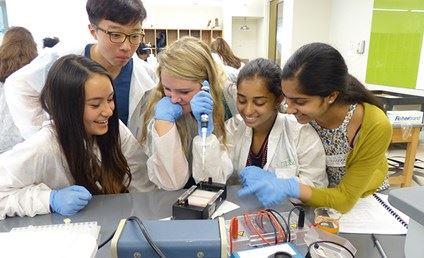
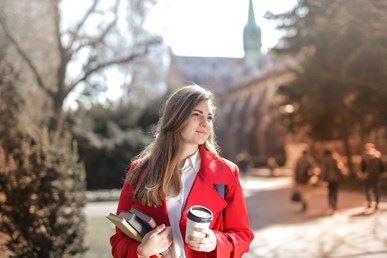
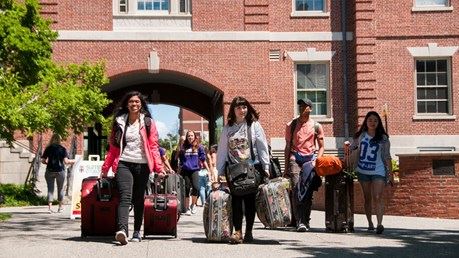

Tell us your
opinion about us